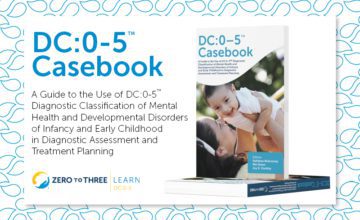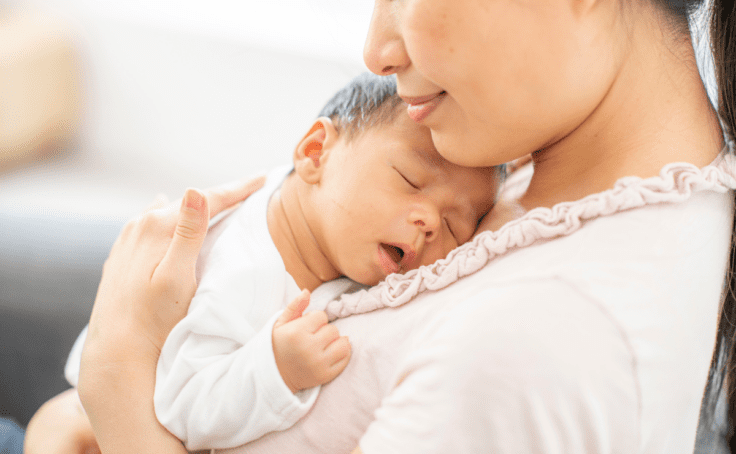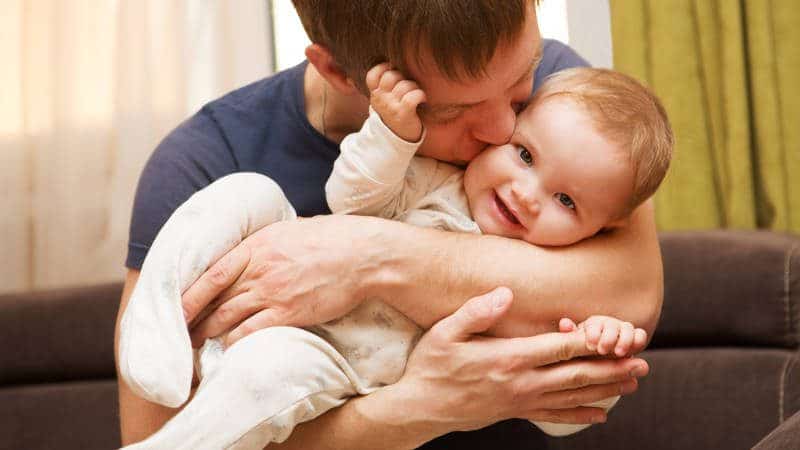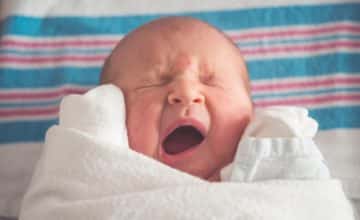
DC:0–5™ Casebook | Infant Mental Health Case Studies
Featuring over 15 infant mental health case studies jam-packed with practical tips to support your work with young children and their families.
Details

Her team at Rutgers University-Camden is a Child Care Resource and Referral Agency working to support access to high-quality and affordable early childhood care and learning.

Brain development doesn’t stop until age 25, and the frontal lobes in charge of impulse control and planning are the last to develop. But, the most pivotal time for brain development is during ages zero to three. Then, from age three to five, the brain begins the process of pruning, where it starts to sort out information that it can use from unnecessary information. After age five, the brain determines what to focus on based on what a child has been exposed to in their earliest years, such as music or a second language.
Yes! But all of the other subsequent experiences matter as well. Before age five, the brain is fine-tuning and creating synapses at a rapid speed. Children’s brains are creating critical connections needed for higher-level abilities later on in life. Experiences matter just as much as the environment as children get older, and families and providers, along with child advocates, can help ensure safe and enriching experiences are possible.
Researchers know that trauma can have severe impacts on a developing brain, including attention and focus issues, learning disabilities, low self-esteem, impaired social skills, and issues with sleep. They add that making efforts to prevent trauma, starting with the mother-child attachment at birth, and home visiting programs that teach providers necessary caregiving skills, can help to minimize potential traumas. For providers working with children who have already experienced trauma, education including trauma-informed training is key. The brain is resilient at its earliest stages, and trauma-informed providers and families make a difference, especially when they access learning to achieve the competency to help children develop.
Toddlers are showing you that the foundation you built during their babyhood is paying off by interacting with others, enjoying the world around them, and doing what toddlers do best — exploring. Ensure the home environment is safe and that you are allowing space to explore, even if it isn’t with formal toys. Even a crinkled-up piece of paper can be a ball, and you can introduce toddlers to music by simply playing your favorite songs and singing along with them.
While some time watching a favorite cartoon or interacting with a learning app isn’t harmful, excessive screen time as a replacement for real human interaction impedes brain development. Children have to be active in their learning experiences, including sensory, language, and physical activities, to be fully engrossed in learning (and growing). Creating limits on screen time also helps children understand limits in the world, and to explore that world in “real” life rather than through a screen — let them try science exploration in real time, not watching them on a screen.
The brain requires proper energy through sleep and nutrition. Breastmilk or formula give newborns and infants the adequate nutrients needed to grow. Going forward, opting for protein-rich foods, and ensuring families have access to those, boosts brain growth. Clean water also impacts growing brains, and children in marginalized communities don’t always have access to clean and nutritious foods. Finally, developing a safe and regular sleep schedule, avoiding bed sharing to prevent accidental injury and death, creates a foundation for brain development.
Become a certified trainer of The Growing Brain: From Birth to 5 Years Old.
A mother’s stress, and therefore cortisol levels in pregnancy, impact the baby, according to a study from the NIH. Toxic stress can also cause development issues during a traumatic birth, on both a physical and psychological level. If there is a lack of oxygen to the brain, a disruption to the labor process, or other complications such as preterm delivery, those can impact the brain. Surrounding the parents with support and resources before, during, and after birth can mitigate these concerns and potential harm.
There is no such thing as “too fast,” there are just developmentally appropriate, and not as appropriate, experiences and events. Those that aren’t appropriate can cause trauma, such as accessing explicit sexual or violent material at a young age on a device. Families and providers can work to ensure they are providing appropriate experiences, and shielding children from those that aren’t, as much as possible.
Like a baby who didn’t have enough oxygen at birth, any child without enough oxygen can have developmental concerns with their brains due to physical impact. But, asthma also carries social and emotional concerns. It can be tied to anxiety and can also mean a child’s experiences are more limited as a family works to avoid asthma triggers, from physical activities, group sports to interactions with animals. Empowering families to manage asthma through proper medical treatment and mental health support for adjacent issues matters.
Observe the child to learn their interests, even if they are wildly different from your own. Then, nurture those interests by providing them affordable and effective opportunities to learn more about them within their current settings and communities. Regular interaction and encouragement to learn and try more new things matters, whether it’s exposure to foreign languages, creative arts, science exploration or anything else that motivates your child to ask more questions and seek answers. These experiences are not just beneficial for the whole-child development, it also provides wonderful new opportunities for the family and child to learn together.
It’s not necessarily just environmental factors, or even traumas, but how caregivers talk through negative experiences, and expose children to positive ones. Parents narrating difficult experiences, from dropping a glass and saying “Oh, that surprised me! I didn’t want that to happen!” to teach a wide variety of words to express emotions is important. So instead of avoiding difficulties entirely, which is virtually impossible, consider how resources can help them adapt and overcome. Parents also need to accept that their children express a wide variety of emotions, their role as a parent is to help their children navigate through trying times and come out more resilient.
What children need are attuned caregivers serving as their primary teachers. Serve and return includes imitating what your baby or toddler does, mirroring it back to them, will encourage interaction. If your baby sticks out their tongue, you try it. When they babble, babble back. Even a simple car ride with meaningful conversation about what a toddler is observing is growing their brains. Many parents have access to recycled paper at work — bring it home and let your toddlers (18 months and older only) scribble on the back, using that blank canvas to explore their creative spirit. Let toddlers bang pots and pans while you make dinner or pretend to make dinner with you using spoons and plastic containers as you comment about their ‘menu’.
Fathers, father figures, and other male role models are sometimes overlooked in the earliest years of development. But strong, positive role models, whether they are engaging in playful roughhousing safely with toddlers to enhance social engagement, or supporting a mother’s breastfeeding journey, are essential to a child’s healthy social emotional development.
Free Webinar: Mental Health & Brain Development
Join Noelle Hause, Senior Manager of IECMH, Professional Innovations Division, to learn how brain development occurs within the context of relationships, and examine the impact of trauma and toxic stress on brain development in infancy and early childhood.





|
2025 LEARN Conference registration is now open! Join us in Baltimore Oct. 8-9.
|